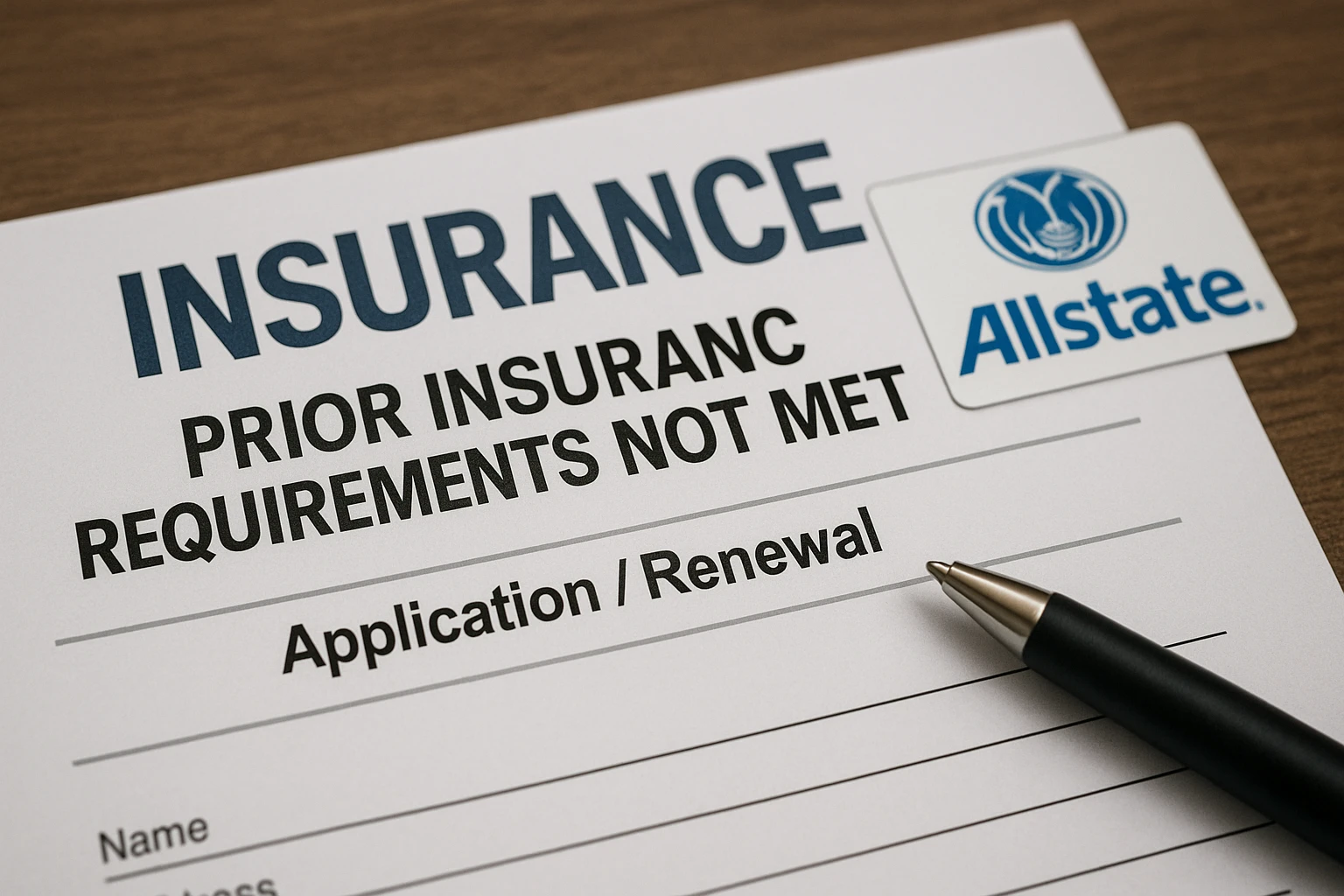Find the Best Home Insurance Quotes in Massachusetts [2025 Guide]
📑 Table of Contents
- 1. Why You Need Home Insurance in Massachusetts
- 2. Average Home Insurance Costs in Massachusetts
- City-by-City Breakdown
- 3. Factors That Affect Your Home Insurance Premium
- 4. Top Home Insurance Providers in Massachusetts
- Liberty Mutual
- Amica Mutual
- Arbella Insurance
- Allstate
- USAA (For Military Families)
- 5. Types of Home Insurance Coverage
- HO-3 Policy (Most Common)
- Flood Insurance (Important in Coastal Areas)
- Earthquake Insurance
- Umbrella Insurance
- 6. How to Compare Home Insurance Quotes
- Step 1: Know What You Need
- Step 2: Get at Least Three Quotes
- Step 3: Compare Coverages, Not Just Prices
- Step 4: Check Company Reputation
- Step 5: Ask About Discounts
- Step 6: Review Deductible Options
- Step 7: Understand the Claims Process
- 7. Tips to Save on Your Home Insurance Premium
- 1. Bundle Your Policies
- 2. Increase Your Deductible
- 3. Improve Home Security
- 4. Make Home Improvements
- 5. Maintain a Good Credit Score
- 6. Stay Claims-Free
- 7. Shop Around Annually
- 8. Ask About Loyalty Programs
- 9. Look Into Group Discounts
- 8. Common Mistakes to Avoid When Buying Home Insurance
- 1. Choosing the Cheapest Policy Without Checking Coverage
- 2. Underinsuring Your Home
- 3. Ignoring Flood Insurance
- 4. Failing to Update Your Policy
- 5. Not Understanding Policy Exclusions
- 6. Skipping Inventory Documentation
- 7. Setting a Deductible That’s Too High
- 9. FAQs About Home Insurance in Massachusetts
- Q1. Is home insurance required by law in Massachusetts?
- Q2. What does Massachusetts home insurance typically cover?
- Q3. How can I get the cheapest home insurance in Massachusetts?
- Q4. What isn’t covered by a basic homeowners insurance policy?
- Q5. Should I get flood insurance even if I’m not near the coast?
- Q6. What is “replacement cost” versus “actual cash value” coverage?
- Q7. Can I change my home insurance company anytime?
- Q8. How do I file a home insurance claim?
- 10. Conclusion: Protect Your Home with Confidence
- Quick Action Plan:
1. Why You Need Home Insurance in Massachusetts
Massachusetts is a beautiful state, but it comes with unique risks for homeowners. Think powerful Nor'easters, sudden flooding, hurricanes (yes, they occasionally reach New England!), and cold winters that can damage property. That’s why home insurance isn’t just an option — it's essential.
Home insurance protects you against:
- Property Damage: Covers repairs for damage due to storms, fires, or vandalism.
- Theft: Replaces stolen personal belongings.
- Liability: Protects you if someone gets hurt on your property.
- Living Expenses: Pays for temporary housing if your home becomes uninhabitable.
Fun fact: According to the Massachusetts Division of Insurance, 89% of homeowners in the state carry some form of home insurance. But not all policies are created equal!
2. Average Home Insurance Costs in Massachusetts
How much should you expect to pay for home insurance in Massachusetts? Here’s the real data:
- Average Annual Premium: About $1,500 (compared to the national average of $1,428)
- Average Monthly Premium: Around $125
- Higher-risk areas: Homes near the coast (like Cape Cod or the North Shore) can see premiums of $2,000 or more due to flood and wind risks.
Source: 2024 National Association of Insurance Commissioners (NAIC) report.
City-by-City Breakdown
| City | Average Annual Premium |
|---|---|
| Boston | $1,550 |
| Worcester | $1,480 |
| Springfield | $1,460 |
| Cambridge | $1,440 |
| Cape Cod (Barnstable) | $2,150 |
Premiums vary a lot depending on your ZIP code, age of your home, and even your credit score!
3. Factors That Affect Your Home Insurance Premium
When it comes to your home insurance quotes in Massachusetts, no two policies are priced the same. Here’s a breakdown of what really influences your cost:
- Location: Coastal areas, like Cape Cod or Plymouth, face higher premiums due to hurricane and flood risks.
- Age and Condition of Home: Older homes (built before 1970) may cost more to insure unless properly updated.
- Construction Materials: Homes made with brick or fire-resistant materials can earn discounts.
- Home Replacement Cost: Policies are based on rebuilding costs, not market value. High construction costs = higher premiums.
- Credit Score: Insurers often consider credit scores when setting rates. Higher scores typically mean lower premiums.
- Claims History: If you've filed multiple claims in the past, your rates might be higher.
- Deductibles: Choosing a higher deductible can lower your premium — but you'll pay more out-of-pocket if you file a claim.
- Security Features: Smoke detectors, burglar alarms, and deadbolt locks can earn you discounts!
Pro Tip: Bundling your home and auto insurance with the same company can save you up to 25%.
4. Top Home Insurance Providers in Massachusetts
Ready to start comparing home insurance quotes? Here are some of the best-rated companies for Massachusetts homeowners:
Liberty Mutual
Headquartered in Boston, Liberty Mutual is a major player in Massachusetts. They offer customizable coverage, bundling discounts, and a user-friendly online quote tool.
- Strengths: Extensive discounts, strong financial stability, 24/7 claims support
- Weaknesses: Premiums can be higher without bundling
Amica Mutual
Often ranked #1 for customer satisfaction, Amica offers outstanding claims service and coverage options.
- Strengths: Excellent customer service, dividend policies (you could get money back!)
- Weaknesses: Higher upfront cost
Arbella Insurance
Local to Massachusetts, Arbella understands the region’s risks better than most national carriers.
- Strengths: Regional expertise, customizable policies
- Weaknesses: Limited availability outside of New England
Allstate
Allstate's "Claim RateGuard" is a popular feature that prevents your rate from going up after filing a claim.
- Strengths: Plenty of discount opportunities, useful mobile app
- Weaknesses: Customer service ratings vary by location
USAA (For Military Families)
If you or a family member served in the military, USAA offers unbeatable rates and service — but membership is limited to military families.
- Strengths: Top-rated service, affordable premiums
- Weaknesses: Only available to eligible military members and their families
5. Types of Home Insurance Coverage
It’s not just about finding the cheapest quote — it's about knowing what’s covered. Here are the most common types of home insurance in Massachusetts:
HO-3 Policy (Most Common)
The HO-3 policy covers your home against "all perils" except those specifically excluded (like floods or earthquakes).
- Dwelling Coverage: Pays to repair or rebuild your home.
- Personal Property: Covers your belongings — furniture, clothing, electronics.
- Liability Protection: Covers lawsuits for injuries or property damage caused to others.
- Additional Living Expenses: Pays for hotel bills, meals, and other expenses if you can’t live at home during repairs.
Flood Insurance (Important in Coastal Areas)
Standard home insurance doesn’t cover flooding. If you live near the water, FEMA’s National Flood Insurance Program (NFIP) or private flood insurance is a must-have.
Earthquake Insurance
Earthquakes are rare in Massachusetts but not impossible. Some insurers offer earthquake endorsements for added peace of mind.
Umbrella Insurance
Extra liability protection that goes beyond your home and auto policies. It’s especially helpful if you have significant assets to protect.
Important Tip: Always check for policy exclusions — such as mold, pests, or wear and tear — which typically aren’t covered unless you purchase extra riders.
6. How to Compare Home Insurance Quotes
Finding the best home insurance quotes in Massachusetts isn’t just about picking the cheapest option — it's about getting the right protection for your biggest investment. Here's how to do it smartly:
Step 1: Know What You Need
Before comparing quotes, understand your coverage needs. Consider the age of your home, value of your belongings, and specific risks (like floods or snow damage).
Step 2: Get at Least Three Quotes
Never settle for the first quote! Get estimates from at least three reputable insurers to see the range of pricing and coverage options available.
Step 3: Compare Coverages, Not Just Prices
Cheaper isn't always better. Make sure you're comparing policies with similar deductibles, liability limits, and dwelling coverage amounts.
Step 4: Check Company Reputation
Look up customer reviews, Better Business Bureau (BBB) ratings, and complaint indexes from the National Association of Insurance Commissioners (NAIC).
Step 5: Ask About Discounts
Don’t be shy! Ask insurers about all available discounts — for bundling, security systems, loyalty programs, and even being claims-free.
Step 6: Review Deductible Options
Choosing a higher deductible (like $2,500 instead of $1,000) can lower your premium — but make sure you have enough savings to cover it if needed.
Step 7: Understand the Claims Process
When disaster strikes, a smooth claims process matters. Ask insurers about their claims filing procedures, 24/7 availability, and timeframes for settlement.
Quick Tip: Some insurers offer online comparison tools, making it easy to get multiple quotes in minutes!
7. Tips to Save on Your Home Insurance Premium
Good news: there are plenty of ways to lower your home insurance costs without sacrificing coverage. Here are expert-approved tips to help you save:
1. Bundle Your Policies
Combine your home and auto insurance with the same provider. Bundling discounts can save you up to 25%!
2. Increase Your Deductible
Opting for a higher deductible can slash your premium significantly. Just be sure you can comfortably cover that amount if you file a claim.
3. Improve Home Security
Adding smoke detectors, burglar alarms, smart locks, and deadbolts can earn you discounts of 5%–15%.
4. Make Home Improvements
Updating your roof, electrical systems, plumbing, or heating can reduce your risk profile — and your premiums!
5. Maintain a Good Credit Score
In Massachusetts, many insurers use credit-based insurance scores to set premiums. A higher score often means lower costs.
6. Stay Claims-Free
Filing fewer claims can qualify you for "claims-free" discounts over time. If the damage is minor, it may be smarter to pay for repairs yourself.
7. Shop Around Annually
Don’t just auto-renew. Your rates could drop if you switch providers after a few years. Always compare before your renewal date!
8. Ask About Loyalty Programs
Some insurers offer lower premiums to long-term customers or even provide perks like deductible rewards over time.
9. Look Into Group Discounts
Belong to a union, alumni association, or large employer? You might qualify for special group discounts on home insurance!
Real Example: John from Boston upgraded his home’s plumbing and installed a security system — and shaved $430 off his annual insurance bill. Little upgrades = big savings!
8. Common Mistakes to Avoid When Buying Home Insurance
Even smart homeowners can make costly mistakes when shopping for insurance. Here are the most common pitfalls — and how you can dodge them:
1. Choosing the Cheapest Policy Without Checking Coverage
We all love a good deal, but a rock-bottom price often means lower coverage. If a disaster hits, you could be left paying big costs out-of-pocket.
2. Underinsuring Your Home
Many homeowners insure their house for the purchase price — not the rebuilding cost. In Massachusetts, where rebuilding costs are among the highest in the U.S., this can leave you dangerously underinsured.
Quick Stat: According to the Insurance Information Institute, about 60% of homes are underinsured by at least 20%.
3. Ignoring Flood Insurance
Flooding isn’t just a coastal risk. Flash floods can happen anywhere — and homeowners insurance does not cover floods. Always check FEMA flood maps and seriously consider flood insurance, even inland!
4. Failing to Update Your Policy
Made major renovations? Bought expensive new furniture? If you don't update your policy, you could be left uncovered if disaster strikes.
5. Not Understanding Policy Exclusions
Don’t assume everything is covered. Read the fine print to know what’s excluded — things like mold, pests, wear and tear, and earthquakes often aren’t covered unless you add riders.
6. Skipping Inventory Documentation
If you ever need to file a claim, having a detailed home inventory — photos, receipts, videos — makes the process faster and ensures you get fully reimbursed.
7. Setting a Deductible That’s Too High
While higher deductibles lower your premium, make sure you can afford the deductible comfortably in an emergency situation.
Smart Move: Talk openly with your insurance agent. A good agent will walk you through the fine print and help avoid these pitfalls!
9. FAQs About Home Insurance in Massachusetts
Q1. Is home insurance required by law in Massachusetts?
Technically, no — but if you have a mortgage, your lender will require you to carry homeowners insurance to protect their investment.
Q2. What does Massachusetts home insurance typically cover?
Standard policies usually cover the structure of your home, your belongings, liability protection, and additional living expenses if your home is uninhabitable after a covered event like a fire or storm.
Q3. How can I get the cheapest home insurance in Massachusetts?
Bundle your home and auto insurance, improve home security, maintain a good credit score, increase your deductible, and shop around annually for the best deals.
Q4. What isn’t covered by a basic homeowners insurance policy?
Standard policies typically exclude floods, earthquakes, normal wear and tear, and pests (like termites). You can buy additional endorsements to cover some of these risks.
Q5. Should I get flood insurance even if I’m not near the coast?
Yes! About 25% of flood claims come from properties outside high-risk flood zones. Flooding can happen due to heavy rains, snowmelt, or drainage failures anywhere.
Q6. What is “replacement cost” versus “actual cash value” coverage?
Replacement Cost: Pays to repair or replace your home and belongings at today's prices.
Actual Cash Value: Pays based on the item's depreciated value (lower payout). Replacement cost coverage is more expensive, but way better if you ever need to rebuild.
Q7. Can I change my home insurance company anytime?
Yes! You can switch insurers at any time — not just at renewal. Just be sure to avoid any lapse in coverage between policies.
Q8. How do I file a home insurance claim?
Call your insurer ASAP after damage occurs. Document everything with photos and videos. Keep receipts if you make temporary repairs. Follow your insurer’s instructions carefully for the smoothest process.
Helpful Resource: Check the Massachusetts Division of Insurance (mass.gov) for more consumer info!
10. Conclusion: Protect Your Home with Confidence
Your home is more than just four walls and a roof — it’s your safe haven, your memories, and your future. Choosing the right home insurance in Massachusetts ensures that no matter what life throws your way, you’ll be protected financially and emotionally.
Finding the best home insurance quote doesn’t have to feel overwhelming. By comparing multiple quotes, understanding your specific needs, asking the right questions, and avoiding common mistakes, you can confidently select a policy that offers peace of mind at a price that fits your budget.
Remember:
- Start by assessing what coverage you truly need.
- Don’t just chase the cheapest price — focus on value and strong coverage.
- Always read the fine print and clarify any doubts before signing.
- Review your policy annually to make sure it evolves with your life changes.
Quick Action Plan:
- Gather basic info about your home (year built, square footage, construction type).
- Request quotes from at least three insurers (like Liberty Mutual, Amica, Arbella).
- Compare coverages, deductibles, and discounts side-by-side.
- Choose a reputable company with a smooth claims process.
- Protect your biggest investment — and rest easy!
Whether you're buying your first home in Worcester, upgrading in Cape Cod, or simply reviewing your coverage in Boston, the right insurance makes all the difference.
Ready to find the best home insurance quotes in Massachusetts? Start today — compare, choose smartly, and live with confidence knowing you’ve got your future protected!
Tip: Save this guide for your annual insurance review — and share it with friends and family who need solid advice!
Disclaimer: The information provided in this guide is for educational purposes only and should not be considered legal or financial advice. Please consult directly with insurance providers for personalized quotes and policy details.

![Find the Best Home Insurance Quotes in Massachusetts [2025 Guide]](https://policyidea.com/storage/uploads/1746447347.webp)






Community Feedback